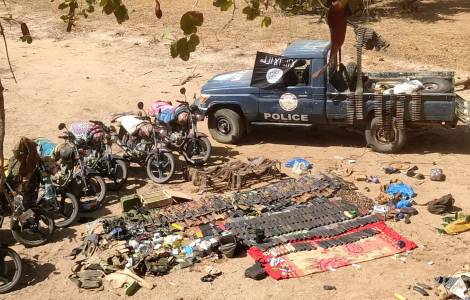
Rome (Agenzia Fides) - According to the Spanish International Observatory for Studies on Terrorism (OIET), the results of the activities of the various jihadist groups operating in the Maghreb and the Sahel are 134 attacks that caused 415 victims in the month of January 2023 alone. At the top of this sad ranking, Burkina Faso is located with 60 attacks, followed by Mali with 36, then Niger with 14, Cameroon with 11 and, worryingly, the coastal states of the Gulf of Guinea: Benin and Togo.
The main jihadist groups are the Islamic State in the Sahel (EIS) and the Islamic and Muslim Support Group (Jamāʿat nuṣrat al-islām wal-muslimīn, JNIM) linked to Al-Qaeda.
These two groups compete to control the areas between Mali, Niger and Burkina Faso, where caravan routes have passed through for centuries, and now both legal and illegal trade.
To contain the Islamic State in the Sahel, the JNIM is said to have promoted a non-aggression pact with the other armed groups operating in Mali, negotiated directly by its leader, the Tuareg Iyad Ag Ghaly. The latter is said to have held a series of meetings at the end of January in Kidal, in the north controlled not by the Malian state but by a coalition of armed groups dominated by the Tuaregs, and in Ménaka, where the Islamic State in the Sahel predominates.
Recently, images of the consequences of a violent clash between the Islamic State in the Sahel and the JNIM that took place in the Tasmakatt area, in Burkina Faso, were disseminated on the social channels affiliated with EIS, showing weapons and equipment captured from the rival group.
"The growing tension between the two groups coincides with the departure of the armies of France and other European countries from Mali and Burkina Faso, as well as the consequent increase in terrorist violence affecting these two countries, whose armies have not yet shown themselves capable of countering jihadist terrorism", indicates the International Observatory for Studies on Terrorism.
The instability caused by the violence of these armed groups has triggered a strong movement of the populations in the affected areas who need food assistance in order to survive. In Burkina Faso alone, the World Food Program (WFP) announced in late 2022 that nearly 3.5 million people would need emergency food aid in the coming months. (L.M.) (Agenzia Fides, 17/2/2023)